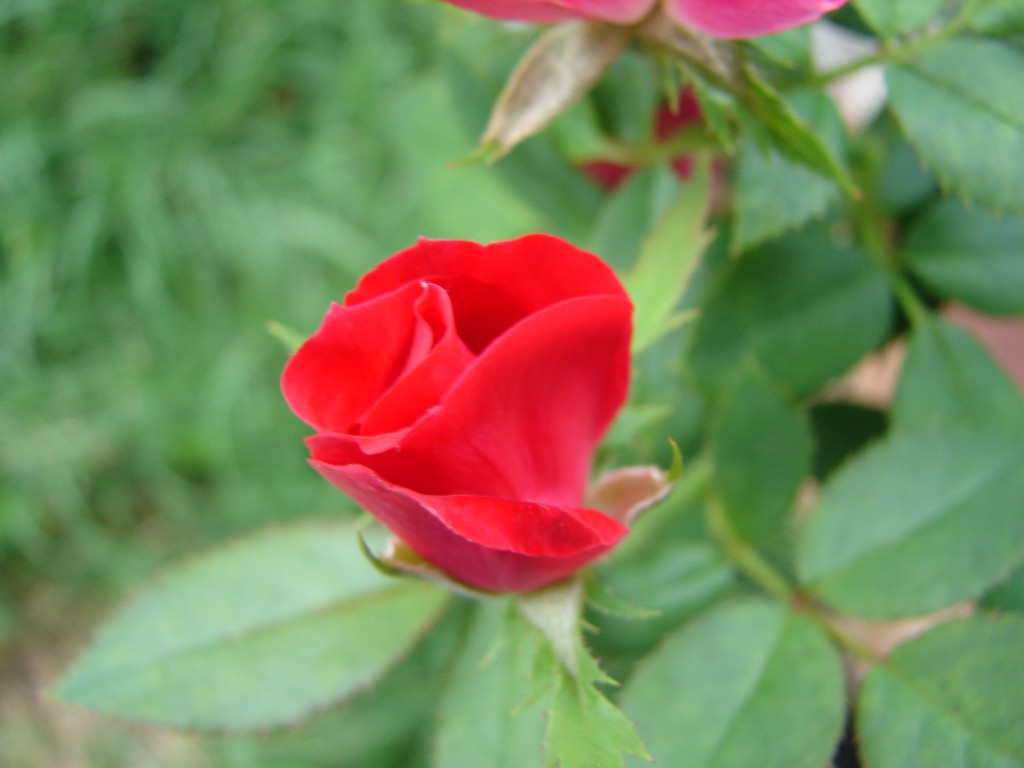Bring me then the plant that points to those bright Lucidites swirling up from the earth, And life itself exhaling that central breath! Bring me the sunflower crazed with the love of light. – Eugenio Montale
A Fierke Garden
My version of Organic Gardening in Texas
adobe download problem
Adobe Illustrator CS5 buy cheap free download adobe reader 8 free download adobe pdf reader buy cheap free download of adobe photoshop cs2 adobe flash downloadwindows 98se adobe reader download
buy cheap Photoshop Lightroom 3 for Mac adobe illustrator 8 download bargain adobe acrobat download cheap adobe acrobat 8 reader download adobe acrobat pdf writer downloaddownload adobe shockwave player
buy cheap Adobe Dreamweaver CS5 MAC download adobe photoshop elements 5 for free adobe photo editor download buy cheap download adobe photo shop album starter adobe flash free download macdownload adobe imageready
Photoshop CS5 for Mac cheapest adobe indesign 2 for windows download free adobe photoshop 7 brushes download cheapest free to download adobe illustratorcs2 adobe acrobat professional downloadadobe pagemaker 7 download
Creative Suite 5 Production Premium cheap adobe page maker full download acrobat adobe reader download cheap free download adobe pdf reader free adobe professional downloadadobe photoshop cs2 trial download
Adobe Illustrator for Mac cheapest free download of adobe acrobat reader adobe illustrator cs2 trial download cheapest adobe acrobat pdr free trial download adobe flash video exporter downloadinstructions on how to download documents on to adobe reader
discount Adobe Premiere Pro CS5 bargain adobe acrobat download free download adobe photoshop album starter buy cheap download adobe photoshopadobe photoshop cs2 keygen download
cheapest Adobe Creative Suite 4 for Mac adobe flash mx download free adobe acrabat reader 5 0 download cheap adobe reader update downloadunable to download adobe flash player
buy cheap Adobe Contribute CS5 for Mac adobe photo editor download adobe illustrator cs2 trialware download discount free adobe fireworks download full version download adobe pdf writer 4pdf adobe download
Adobe Flash CS5 for Mac cheap trial download of adobe illustrator cs3 free adobe 7 download cheapest free adobe photoshop 7 brushes downloadadobe photoshop 8 free download
Adobe Acrobat X Pro MAC discount adobe type collection free download adobe distiller free download discount adobe photo free download adobe illustrater downloadadobe flash download mirror free
AutoCAD Architecture 2010 cheapest free download adobe premier adobe photoshop frree download discount free trial download adobe photoshop mac adobe gamma downloadadobe pagemaker with serial download
discount AutoCAD LT download stand alone adobe flash adobe illustrator download free discount download adobe after effectsbargain adobe acrobat download
Adobe Indesign CS5.5 cheap where can i download adobe reader free download adobe cs3 buy cheap download adobe photoshop tubes adobe gamma downloadfree software download adobe reader
cheap Creative Suite 5.5 Production Premium free adobe photoshop 7 patterns download free adobe photoshop 60 download buy cheap how do you download adobe flash player for the sidekick lxadobe photoshop download discount software
buy cheap AutoCAD LT adobe golive cs2 download adobe photoshop 60 download cheap where does adobe save download video files download full adobe pagemaker 7adobe reader 812 download
buy cheap adobe creative suite 4 adobe acrobat download crack adobe acrobat capture download cheap adobe photoshop 7 free download download adobe illustrator symbolsdownload adobe flashplayer 9
adobe cs5 discount download adobe photoshop elements 3 adobe download interruption cheap adobe flashplayer download softpediafree download on how can i capture video from adobe flash player
buy cheap Adobe cs5 Design Premium free adobe image ready download download adobe acrobat reader free cheapest adobe photoshop elements free download download adobe acrobat 8download adobe illustrator windows xp
cheap Adobe Dreamweaver CS5 adobe type manager light download download adobe photoshop 8 cs cheap adobe 5 free download download adobe active xunable to download adobe acrobat reader
cheapest Adobe Flash Catalyst CS5 adobe premiere free download download adobe ebook reader cheap adobe raider 8 downloadadobe acrobat megaupload direct download
cheap Adobe Illustrator CS5 free download for adobe photoshop macosx download adobe scanner buy cheap free download trial version of adobe photoshopadobe illustrator cs2 download
Adobe Indesign CS5 buy cheap download adobe illustrator 8 adobe after effects full download discount adobe live motion download download adobe indesign cs3download adobe photoshop elements 4
Adobe Photoshop Lightroom 3 cheap free acrobat adobe download free download of adobe acrobate software cheapest download adobe reader 7 download adobe photo deluxeCrazed with the love of light!
Lake Fierke
Its back…
- Lake Fierke
- Bald Cypress Drinks
- Swamp
- The pond by the pond
I think I spoke too soon the other day when I said we no longer have our swampy lake problem. The difference is that the two bald cypress, Texas star hybiscus, Gulf Coast Penstemon, Louisiana Iris and Elderberry will all make quick work of draining it. The only one that may not be terribly happy is the rose. Sorry poor rose.
“The Whole Wide World Is Out A-Maying”
The flowers in the breeze are swaying, swaying,
The whole wide world is out a-Maying
– Genevieve Mary Irons
May Garden Chores
-
Finish April’s chores! Isn’t that the way it always is?
- Spray Roses and crepe myrtles with baking soda spray weekly to control black spot and fungus.
- Mow weekly, tune up mower and sharpen blades.
- Pot up extra seedlings to give away.
- Give bad bugs a soapy bath.
- Pull dandelions to feed to chickens and bearded dragon (and some for a salad?)
- Repair ladder arbor – after the baby Mockingbirds leave the nest.
- Put out beneficial nematodes to control fire ants, fleas, ticks and chiggers. Dust around trees with dusting sulfur and diatomaceous earth for ticks.
- Mulch all beds once seedling are established.
- Spray everything once a month with compost tea.
- Dig out last forsythia and give to a friend. (It is just too big for the space it is in.)
- Spot prune trees (lacebark elm, apricot, winged elm) for shape and structure. This should have been done much sooner!
- Put out composted horse manure on lawn and flowers and composted chicken manure on veggies.
- Move yarrow to shade, L’il Business daylilly to sun and cut back asters.
- Re-pot house plants and feed with compost tea.
- Build new compost rings.
- Clean and treat the pond weekly.
- Weed, weed, weed! (Especially the Carolina Snailseed, Cypress vine and that stuff that looks like ruellia on steroids!)
- Feed and water the birds.
- Check the weather for when NOT to water!
There! That should keep me busy!
Happy May Day!
I remember celebrating May Day as a kid. We would make construction paper cones with a pipe cleaner hanger and decorate it with ribbons. Then we would go to a field and pick wild flowers (I even remember doing some with flower out of the yard), wrap them in wet newspaper and wax paper and then put them in the cone. We hung them on the doors of neighbors, rang the bell and then ran to hide. It seems so simple, but we had so much fun with it! I don’t know how we came to celebrate May Day so much since most of the US doesn’t (the Puritans were NOT amused by it) but perhaps it was because Garden City, KS had a rather large German population.
May Day was originally a fertility celebration of the pagans that was around long before Christianity. It was an important holiday for the Romans who dedicated the day to ‘Flora’, the goddess of flowers. During the reign of the Puritans, the celebration was discouraged, but it was still an important holiday in Europe when they fell out of power.
The Maypole was a tradition during the middle ages, and competition among villages, to find the largest pole and erect it in the village center. The Maypole disappeared when the Puritan Long Parliament forbid it in 1644 but it was revived when the Stuarts regained power. Gradually, the May Day celebration became less about celebrating spring fertility and more about kids enjoying a day of joy and merriment. The Maypole even became a symbol of freedom during the French Revolution when it became the ‘Tree of Liberty.’
I even remember dancing around a Maypole in grade school and choosing a May Queen who was crowned with a daisy-chain crown. I wish I had thought ahead a little bit and had made May baskets with Samantha this year! Maybe after school today? We’ll see.
In the US, May Day became politically tied to the fight for a shorter work day. On May First, 1886, unions enacted a national strike for the 8-hour work day. The strike center was in Chicago, but strikes where also held in New York, Baltimore, Washington, Milwaukee, Cincinnati, St. Louis, Pittsburgh, Detroit among other smaller walkouts. I’m very grateful for the strikers and the 8-hour workday! Happy May Day!
Fragrant Prairie Phlox
Fragrance, beauty and drought tolerance… what more could you want in a flower?
Prairie phlox (Phlox pilosa) is a native Texas perenial that does well in part sun or bright shade. The smell is intoxicating and it is a butterfly manget! It has a heady bloom in the late spring and then goes partiallyl dormant for summer and fall. It stands about a foot tall. We have it blanketing the ground underneath the weeping peach trees right near a garden bench. Heaven!
April Showers
They are definitely bringing May flowers! A quick walk through my garden revealed all of these blooms:
- All thirty roses! The Cecile Bruner was the last to join the show.
- Autumn Coral Sage
- Spanish Lavender
- Bearded Irises (just the yellow and pink so far)
- Geraniums
- Strawberries
- Royal Tapestry Yarrow
- Asters (just a few blooms – they are really supposed to bloom in the fall)
- Mealy Blue Sage
- Scarlet Sage
- Sun Drops
- Dahlberg Daisies
- Santolina
- Radish
- Trailing Verbena
- Louisiana Iris
- Coral Honeysuckle
- Snapdragons
- Oxalis (both the red and the green)
- Clover
- Wine Cups
- Pomegranate
- Blackberries
- Elderberries
- Oxeye Daisies
- Passion Flower
- Marigolds
- Black and Blue Sage
- Petunias
- Gulf Coast Penstemon
- Tomatoes
- Peppers
- Lamb’s Ear (got to get rid of those… sorry honey bees)
- Lemon Thyme
- White Borage
- Cilantro (need to cut the seed heads back on that one)
- Phlox
- Russian Sage
- Calibrochoa
I’m very grateful for the rain!
The Dallas Planting Manual
 This is another one of my favorite gardening books. My copy has notes written in the margins, thing circled, starred and crossed out. It was misplaced a couple of weeks ago and I almost panicked!
This is another one of my favorite gardening books. My copy has notes written in the margins, thing circled, starred and crossed out. It was misplaced a couple of weeks ago and I almost panicked!
This book is so wonderfully specific for the DFW area. It is an incredible resource for different organizations, associations and nurseries. It has sections for just about anything that could possibly be grown in Texas from bogs and water gardens, rock gardens, containers, all the way to veggies. It has a great monthly break down of what needs to be done when. My only complaint is that that it does contain a few chemical solutions that I won’t use, but in spite of that, it does rely heavily on organics.
The copy I have is the Thirteenth Edition published in 1998. It looks like the Fourteenth Edition was published in 2001. I wonder what’s different and if I need a new copy?
Join An Organic Co-op!
I have to admit that I used to belong to a food coop (back then it wasn’t even organic) and I found that the same things I was getting in the co-op were the same things I was getting by the bucket full out of my garden – so I stopped. But if I didn’t have the garden, I wouldn’t be without a co-op!
I have a friend, Bonnie Carner, that runs just such a co-op! Here is the scoop that Bonnie sent me…
What is Your Health Source?
Your Health Source was formed to bring organic produce plus a variety of household items into your area at great prices, with a convenient one stop pickup location. The co-op is a group of people buying food and other products together to save money and get better products or products normally unavailable in their area. Your Health Source offers co-ops a mixed produce variety basket. We buy from organic suppliers and local suppliers. We work to provide you with the finest and most interesting variety of produce available.How Much Does It Cost?
A Basic Share costs $50 per delivery, plus a yearly $25 membership fee (held for three orders to ensure you enjoy the co-op).How Much Food Is It?
The amount of food in each delivery varies between 15-30 lbs., ranging between 14–16 different items (see sample orders). Items are changed up with each delivery.How Often Are Deliveries?
Deliveries at the host location come every other Tuesday. Garage pickup time will be made available on a regular basis from 10:30 – 2:00. Arrangements can be made for those that wish to pick up at a later time. You will be notified via email of the items being delivered a week in advance.What Other Products Can We Get?
Besides produce, we offer local pastured eggs, raw milk, whole grains, nuts, local raw honey, cooking oils, etc. Request the Dry Goods price sheet for more info. In addition to the Basic Share, you can order individual produce items.How Do I Join?
You start by making a 6 week commitment (3 order cycles). This gives you a chance to decide if you really like the process and the products. Your host may also let you substitute for one pickup. Please contact your host for enrollment or sign up on www.yourhealthsource.org.
Fresh organic produce all summer long!













